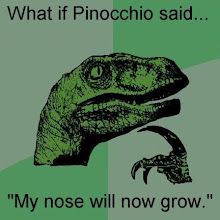Because of the multiple pressures on the paper I had to be selective: we couldn’t adapt Passmore & Stewart’s program in its entirety. In the end, we combined a range of activities that enouraged the class to: work collaboratively, build models, discuss ideas, and defend their position. This included a session using Rob Gendron’s exercises based on the Caminalcules, intended to get students thinking about the evidence for determining relationships between groups of organisms, and the ways in which organisms might change over time. (The Caminalcules are rather hard-case, & because they look nothing like any animals students will have experience of, there’s less chance of preconceptions around relationships affecting the outcome.) While fun, it also required students to explain and defend their decisions. Another class had them reading & discussing work by Paley, Lamarck & Darwin (as described by Passmore & Stewart) & then analysing these models to identify the assumptions made by each author – & also their shortcomings. The idea here was to allow the class to identify some of the common misconceptions around evolutionary theory, & hopefully to avoid them themselves. It led on to a deeper examination of natural selection, based around some other work from Rob Gendron: a simulation of the action of natural selection, that you can expand on by introducing things like variation & mutation into the discussion. And we originally finished up with a role play, where students took on the role of mediator & protagonists in a creation/evolution debate (script from a debate broadcast in the US some years ago). Then a couple of years later the PBS documentary on the Dover trial came out, & we used that instead as the starting point for a discussion around the nature of science. (This section of the course was definitely not your ‘typical’ university science lab course!)So if you are a science teacher anywhere the article is pretty good and discusses some very good options to help teach science.
Sunday, October 3, 2010
Solutions?
I presented a problem that needed to be fixed this morning well I happened to have found a link this evening to a potential solution. While it deals more specifically with teaching in New Zealand it provides solutions that might be useful in the US as well.
Subscribe to:
Post Comments (Atom)

No comments:
Post a Comment